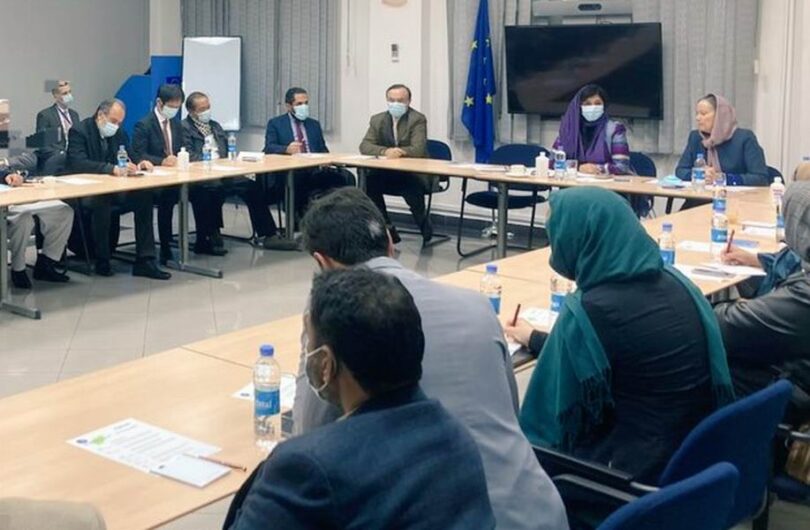KABUL (Khaama Press): The European Union mission in Afghanistan in collaboration with the World Bank convened more than 25 small and large-scale Afghan businessmen and women to understand their challenges and obstacles.
On Saturday, the EU mission in collaboration with the World Bank held a consultative meeting with a group of Afghan business people and entrepreneurs to address the many issues they are currently faced with and meet the expectations of the private sector.
Challenges in the banking system, power outages, trade and economic connectivity, restrictions on female employees, and regional cooperation were the agenda of the discussion, the EU mission in Kabul said on Twitter.
Since the overthrow of the previous regime by the Taliban in August 2021, the national economy is faced with an unprecedented recessionary period, with almost zero foreign investment in the country.
The recent regime change caused a large majority of national business people to flee the country and minimize their business activities, having adversely affected the private sector.
Lack of recognition of Afghanistan’s de facto regime by the international community has led to new problems including not having access to the international banking system and financial services in the global markets.
This has made it very complicated for Afghan businesspeople and entrepreneurs to engage in economic and trade activities in the region and beyond.
The ban on female employees of non-government organizations (NGOs) has also negatively affected the inflow of humanitarian aid and business activities in Afghanistan.
A large majority of aid organizations have set the removal of female employee restrictions as a pre-condition to resume their operations across the country.
Worst of all, the power shortage, is a new addition to the many challenges the private sector is currently facing in the country.
Due to technical issues, the imported power from Uzbekistan has been substantially decreased, causing further hurdles in the day-to-day activities of the local business across Afghanistan.







